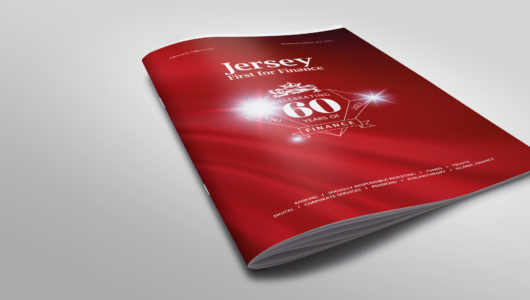Jersey’s finance industry has maintained and enhanced its status by ensuring that, whenever possible, it has adapted and evolved to meet the changing landscape of global finance. In the past, we achieved this by understanding where the market was heading and adjusting our products and services so that we worked in tandem with the demands of the international investment community, while also fully respecting existing and emerging regulatory standards. In the future, we will need to do the same.
Our minds will be focused on four areas that have served us well to date; namely our resilience as a jurisdiction and our respectfulness of regulatory standards, our connectivity to the rest of the world alongside a willingness to invest in technology, the attractiveness of our jurisdiction as being politically and economically stable and our focus on responding to investors changing priorities, for example environment, social and governance (ESG) concerns. Our response to these factors in the short and long term will be the cornerstone to a successful future.
Our priorities in the months and years ahead are to continue with our focus on regulatory excellence, continue to invest in technology and innovation and to fulfil our ambition as an IFC that drives positive change in both local and global communities.
FORWARD THINKING
The key accelerant during the last 18 months has been the impact of COVID-19 and within the financial services industry, the most obvious shift has been in the use of technology to facilitate how we interact with each other and how we transact business. There is no better example of Jersey’s forward-thinking approach to its finance industry than its reaction to the pandemic last year.
First of all, both our Member firms and our 13,500 strong workforce adapted quickly to the circumstances, continuing to deliver high-quality services, whether working from home or in the office, using technology solutions wherever possible. Underpinning this response was the investment many years earlier by the Government of Jersey in the Island’s IT infrastructure, including high-speed fibre connectivity to every household and office across the Island. The speed and resilience of our connectivity has been truly tested and we passed with flying colours.
More recently, conscious also of the increasing application of artificial intelligence and other technologies in the financial services, we have brought different industry bodies together through ‘Jersey for Fintech’ – a unified vision of the Island’s fintech ambitions and a platform to ensure that Jersey remains an ideal location for fintech firms to flourish and for financial services firms to utilise fintech. Fintech has the potential to be a core differentiator for Jersey in supporting investors in this new environment where robust and resilient connectivity will be critical to remote investor supply chains.
NEW THINKING
Meanwhile, alongside the pace of change in IT innovation, the industry is responding to the global shift towards new priorities, leading to ESG principles becoming embedded in firms’ processes.
Furthermore, with the impact of a very noticeable climate change now bringing governments together to find methods to reduce the carbon we unleash into the atmosphere, these ‘green’ inspired trends in business and finance are set to be embedded in the way we all work in the future, while IFCs– always under close scrutiny – will be evaluated in future through an ESG lens. Fund managers are already bringing ESG factors into their assessments in their choice of domicile, while the next generation of investors have made it clear that their priorities will reflect this new thinking.
Jersey believes that, with its many years of experience in channelling capital effectively, its role will become ever more important in facilitating both foreign direct investment across the globe and in meeting expanding philanthropic ambitions into projects designed to make a positive difference to our world. At Jersey Finance, we have embraced this enhanced ESG agenda already and are in the process of implementing a new 10-year strategy and long-term vision to position Jersey as a global leader in sustainable finance by 2030.
At the same time, we are entering a period of rapid change among the ultra high net worth community. According to Cerulli Associates, the great wealth transfer from older UHNWs to Generation X and Millennials in the US will see as much as US$68 trillion changing hands over the next 25 years, while our own study in association with the publisher Hubbis in Asia, showed that 69% of respondents indicated that between a quarter and three quarters of the NextGen financial investment portfolios will be centred on ethical, impactful or ESG investments.
In the years ahead, it will not only be the way we transact business and the IT platforms that support it that will change but client thinking will also evolve and IFCs such as Jersey must anticipate and understand those sentiments and ensure its own credentials remain attractive.
QUALITY
Regulatory standards will continue to be enhanced and will inevitably lead to greater levels of transparency and an increased compliance burden. The IFCs that thrive in that environment will be the ones that remain focused on keeping up with those changes and embracing them. Jersey has been historically quick to respond and has, for example, implemented ‘economic substance’ laws, while making improvements to its beneficial ownership reporting among other things. Our Government’s willingness to engage with and cooperate with standard setting authorities helps us to remain in the top tier of jurisdictions for the quality of our regulatory regime when assessments take place by supervisory organisations such as the Council of Europe’s MONEYVAL and the Financial Action Task Force (FATF).
At this time, there is a concerted effort by western governments led by the OECD to revise the global taxation system so that certain types of companies are not able to ‘shop around’ to find the lowest tax rate for their profits. The introduction of a global minimum rate of corporate tax as currently contemplated, should it arise, is not a barrier to our future effectiveness as an IFC and we are confident that we will adapt to any new taxation rules, as we have done in the past. Jersey has always punched above its weight in this regard and has been agile and innovative enough to design and implement robust regulatory and legislative regimes that are the hallmark of its offering and more than stand up to international scrutiny. We have no intention of changing this approach that has served us so well in the past.
GLOBAL REACH
We can expect the growth in new markets to continue, especially the well-documented shift in wealth from the West to the East. To play a leading role in that new environment, IFCs will need both an international footprint and the capability to raise awareness and promote the expertise of their jurisdiction to an ever-increasing range of clients in overseas markets such as the Gulf, the US, Africa and the Far East.
JURISDICTION OF CHOICE
Within this evolving environment, there are factors that will remain fixed. Investors will continue to want a stable jurisdiction, that is both resilient but nimble enough to react to changes, innovating where opportunities arise and always forward thinking. A tried and tested legal and regulatory environment will remain essential. International investors will continue to look for specialist expertise, high-quality service levels and an understanding of key global markets and how to connect effectively with them. Jersey ticks all those boxes and the quality of the people within its financial services industry means it has the momentum to remain a jurisdiction of choice in the years ahead.

